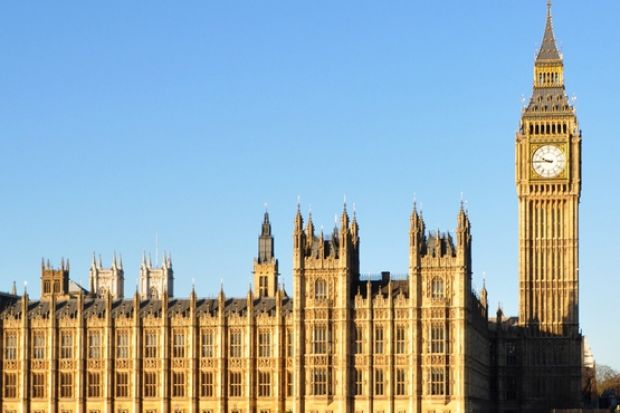Part of the bill’s aim is to ensure that migrants from outside and within the EU are either prevented from using, or contribute towards, some public services such the NHS.
Times Higher Education reported in March on sector concerns that such measures could deter overseas students from coming to the UK.
The Queen announced today that the immigration bill “will ensure that this country attracts people who will contribute and deters those who will not”.
The Guardian reports that it is unclear whether this means that temporary migrants will be required in future to have private health insurance or to post some kind of “NHS bond” before arriving in the UK. “Coalition talks on this remain deadlocked,” the newspaper adds.
Nicola Dandridge, UUK chief executive, said recent evidence on international students “suggests they place significantly less burden on public services than other kinds of migrants. It is also a condition of their visa that they have no recourse to public funds.
“Many live in shared, student accommodation, which places less burden on council services. And owing to their age profile, they are less likely to require NHS care or have dependants.
“If the government’s aim is to make the UK a country that attracts people who will contribute, they need look no further than international students and international university staff.”
Vivienne Stern, head of political affairs at UUK, writes in a blog on the Queen’s Speech: “In the pre- and post-speech spin, ministers and Number 10 were keen to make special reference to the desirability of attracting legitimate international students. This really matters. It means that the importance of attracting international students is right up there at the top of the political agenda when they are talking about one of the most central policy issues of the next election.”
Ms Stern describes the intellectual property bill, also announced in the Queen’s Speech, as “the other big news” for higher education. “Although little detail is currently available we also expect the Bill to contain an amendment to the Freedom of Information Act 2000 which would exempt pre-publication research from Freedom of Information requests,” she says.
Register to continue
Why register?
- Registration is free and only takes a moment
- Once registered, you can read 3 articles a month
- Sign up for our newsletter
Subscribe
Or subscribe for unlimited access to:
- Unlimited access to news, views, insights & reviews
- Digital editions
- Digital access to THE’s university and college rankings analysis
Already registered or a current subscriber? Login




